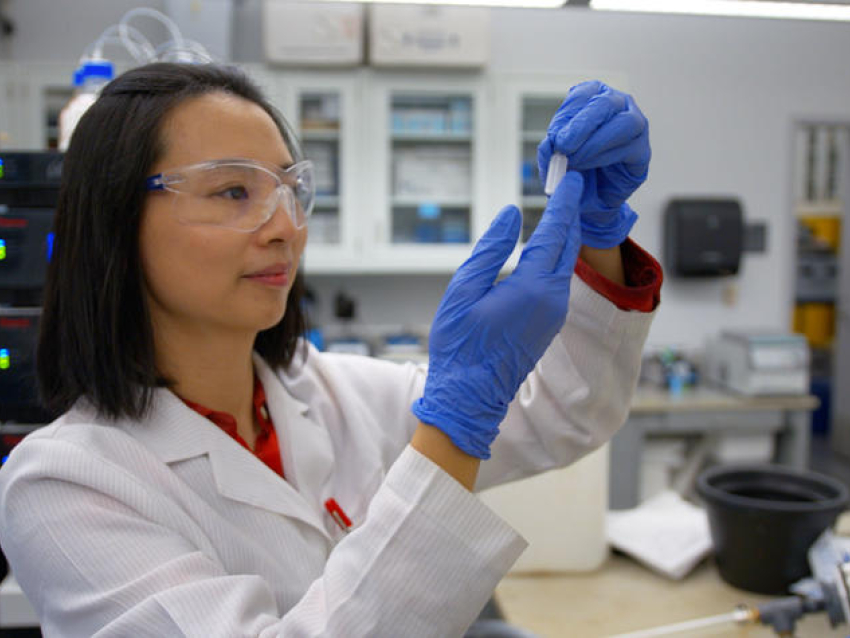
Pan Deng Joins UK College of Pharmacy
Dr. Pan Deng earned her Ph.D. degree in medicinal analysis from Shanghai Institute of Materia Medica, Chinese Academy of Sciences. During her graduate studies, she investigated the metabolism of cardiovascular and anticancer drugs and revealed novel metabolites that contribute to drug efficacy and toxicity.
Her postdoctoral training at the Resource Center for Stable Isotope-Resolved Metabolomics at the University of Kentucky was a natural extension of metabolism research, which provided her with a unique skillset to study metabolites/lipids biosynthesis and homeostasis in cells and animal disease models. During her time at the University of Kentucky Superfund Research Center (UK-SRC), she investigates the host and microbiome metabolic disturbances induced by environmental toxin exposures and explored underlying cardiovascular disease risks.
In August 2020, Dr. Deng joined the University of Kentucky College of Pharmacy as a Research Assistant Professor of Pharmaceutical Sciences. Dr. Deng’s research focuses on exploring disease mechanisms and developing new treatments for neonatal abstinence syndrome. Additionally, Dr. Deng is involved in researches to explore the interplay between nutrition and environmental toxins, which relates to research projects funded through NIEHS/NIH-funded UK-SRC.
